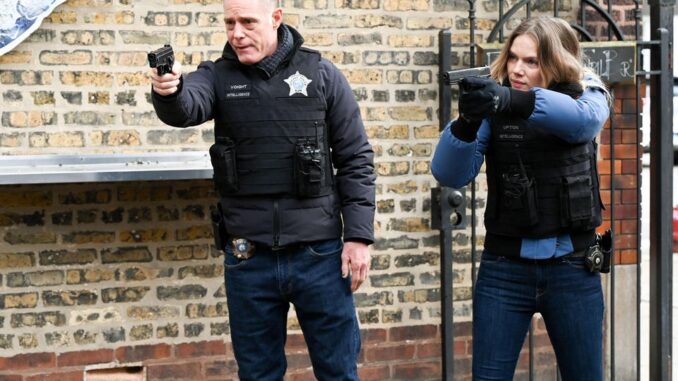
The klieg lights of Hollywood illuminate more than just talent; they often cast long, unforgiving shadows on personal missteps and public perception. Yet, within this high-stakes arena, stories of evolution—both personal and professional—unfold with compelling drama. The journeys of Jason Beghe and Jon Voight, while distinct in their trajectories, offer potent illustrations of how individuals in the public eye can navigate the tempest of controversy and the relentless demand for reinvention, emerging as figures transformed by experience and commitment.
Jason Beghe’s narrative is one etched in the crucible of public accountability. For years, the actor, perhaps best known now for his stoic portrayal of Hank Voight in Chicago P.D., found himself embroiled in significant controversies. His outspoken defection from the Church of Scientology, while hailed by many as courageous, brought with it a torrent of revelations about his past experiences within the organization, painting a picture of an individual grappling with profound personal and psychological challenges. Compounding this, reports surfaced regarding his onset behavior on Chicago P.D., detailing allegations of anger issues and a difficult demeanor, leading to an HR investigation and a public acknowledgment of his struggles.
Beghe’s response to these past controversies has been marked by a rare candor in an industry often predicated on PR-managed apologies. Rather than deflecting or denying, he has chosen a path of vulnerability and ownership. In various interviews, he addressed his past behavior directly, linking it, in part, to the lingering effects of his involvement with Scientology and his own acknowledged struggles with anger. He spoke of seeking help, engaging in therapy, and actively working to manage his emotions and interactions. This public reckoning, a form of radical transparency, served not as an excuse, but as an explanation, inviting understanding rather than condemnation.
The evolution evident in Beghe is not merely a change in public relations strategy; it appears to be a profound personal commitment to growth. The shift from an actor rumored to be difficult to work with to one who openly discusses his journey of self-improvement has resonated with audiences and colleagues alike. It demonstrates that true evolution in the public sphere often demands facing one's demons head-on, acknowledging imperfections, and actively pursuing change. For Beghe, this journey has allowed him to retain his prominent role, lending a layer of real-world gravitas to his character’s own often-flawed but ultimately redemptive arc, and forging a path toward continued relevance predicated on authenticity.
In stark contrast, Jon Voight’s evolution is less about navigating personal controversy and more about the enduring mastery and refinement of an acting craft honed over half a century. From his breakout, Oscar-nominated role as Joe Buck in 1969’s Midnight Cowboy to his Oscar-winning turn as a paraplegic Vietnam veteran in 1978’s Coming Home, Voight established himself as a formidable talent of the New Hollywood era—a practitioner of Method acting, embodying raw vulnerability and intense dramatic power. His early career was defined by a chameleon-like ability to inhabit disparate characters with unwavering commitment.
As the decades progressed, Voight’s evolution as an actor manifested in a deepening of his range and a willingness to embrace increasingly complex, often morally ambiguous characters. He moved beyond the archetype of the sensitive leading man to explore figures of power, villainy, and profound internal conflict. His work in films like Heat, Mission: Impossible, and Ali showcased his versatility, proving he could excel in blockbuster fare while still bringing gravitas and nuance.
However, it is perhaps in his more recent work, particularly as Mickey Donovan in the Showtime series Ray Donovan, that Voight’s evolution finds its most compelling illustration. As Mickey, a charming, manipulative, and deeply flawed patriarch, Voight delivered a performance that was a masterclass in controlled chaos. He imbued Mickey with a magnetic charisma that belied his often-nefarious actions, creating a character who was simultaneously loathsome and lovable, a constant source of both comedic relief and profound dramatic tension. This role required not just skill, but the cumulative wisdom of a life lived in acting—the understanding of human frailty, the rhythm of dialogue, the power of a knowing glance. It was a performance that felt both spontaneous and deeply considered, a testament to decades spent refining his instrument.
Voight’s evolution is not a story of overcoming personal scandal, but of transcending fleeting trends to achieve enduring artistic relevance. It is a testament to the idea that true mastery is a continuous journey, a persistent pushing of boundaries, and a deepening of understanding of the human condition. His current work stands as a culmination of his early Method training, his later commercial successes, and his unwavering dedication to the art form itself, demonstrating that artistic evolution is about relentless pursuit of depth and authenticity within the craft.
In the final analysis, both Jason Beghe and Jon Voight illustrate different yet equally vital forms of evolution within the demanding landscape of Hollywood. Beghe’s journey speaks to the redemptive power of accountability and personal transformation in the public eye, a testament to the possibility of change even when past errors are writ large. Voight’s trajectory exemplifies the enduring power of artistic dedication, the slow burn of craftsmanship, and the profound depth that can be achieved through a lifetime devoted to honing one’s creative instrument. Together, their stories underscore that for those who endure in the spotlight, evolution is not merely an option, but a profound and often public necessity, shaping not only their careers but also their very identities as artists and individuals.
